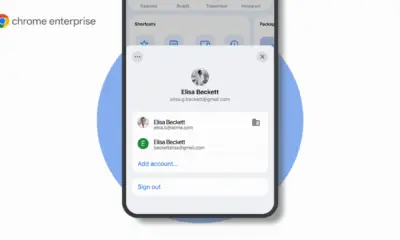Technology
Popular VPNs Under Scrutiny for Potential User Surveillance

Virtual Private Networks (VPNs) are commonly regarded as essential tools for enhancing online privacy and security. However, recent findings raise concerns about the reliability of certain VPN providers, with some potentially compromising users’ privacy. A security research report has brought attention to FreeVPN, a widely used Chrome extension, which has been accused of spying on its users. This service, which boasts over 100,000 downloads, exemplifies how even popular VPNs can pose risks to privacy.
Many individuals utilize VPNs to access restricted content or to maintain anonymity online. While some services genuinely prioritize user privacy, others may engage in questionable practices. Certain VPNs still collect technical information such as bandwidth and connection timestamps, which are often necessary for functional service delivery. Nonetheless, this data can sometimes lead to privacy violations.
Understanding VPN Data Collection Practices
Reputable VPN providers emphasize their commitment to user privacy by avoiding the collection of sensitive data, including IP addresses and browsing histories. Some market themselves as “No Log VPNs,” promoting features like RAM-only servers and zero-knowledge systems that promise to delete user data immediately after disconnection. Yet, consumers should approach these claims with caution, as the terminology used can vary significantly among different companies.
Not all data collection is inherently negative. Aggregated data can be useful for analytics and service improvement, but mishandling of such information can lead to significant privacy concerns. Users must remain vigilant about the extent of data retention by their VPN providers.
Steps to Verify VPN Reliability
To ensure a VPN provider is trustworthy, users should start by examining its privacy policy. A thorough reading can reveal whether the company is transparent about its data collection practices. A vague or overly complex privacy policy might be a warning sign. Additionally, verifying whether the company has undergone external security audits can provide further assurance regarding its integrity.
Should users find that their current VPN provider collects more data than they are comfortable with, switching to a more reliable option can be straightforward. The market is populated with budget-friendly VPN services that prioritize user privacy and security.
As the landscape of online privacy evolves, individuals must remain proactive in safeguarding their information. The incident involving FreeVPN serves as a cautionary tale, highlighting the importance of scrutinizing VPN services before committing to them. With the right knowledge and resources, users can navigate the complexities of online privacy and select a VPN that truly protects their digital footprint.
-

 Politics4 weeks ago
Politics4 weeks agoSecwepemc First Nation Seeks Aboriginal Title Over Kamloops Area
-

 World5 months ago
World5 months agoScientists Unearth Ancient Antarctic Ice to Unlock Climate Secrets
-

 Entertainment5 months ago
Entertainment5 months agoTrump and McCormick to Announce $70 Billion Energy Investments
-

 Science5 months ago
Science5 months agoFour Astronauts Return to Earth After International Space Station Mission
-

 Lifestyle5 months ago
Lifestyle5 months agoTransLink Launches Food Truck Program to Boost Revenue in Vancouver
-

 Technology3 months ago
Technology3 months agoApple Notes Enhances Functionality with Markdown Support in macOS 26
-

 Lifestyle3 months ago
Lifestyle3 months agoManitoba’s Burger Champion Shines Again Amid Dining Innovations
-

 Top Stories2 months ago
Top Stories2 months agoUrgent Update: Fatal Crash on Highway 99 Claims Life of Pitt Meadows Man
-

 Politics4 months ago
Politics4 months agoUkrainian Tennis Star Elina Svitolina Faces Death Threats Online
-

 Sports5 months ago
Sports5 months agoSearch Underway for Missing Hunter Amid Hokkaido Bear Emergency
-

 Politics5 months ago
Politics5 months agoCarney Engages First Nations Leaders at Development Law Summit
-

 Technology5 months ago
Technology5 months agoFrosthaven Launches Early Access on July 31, 2025















